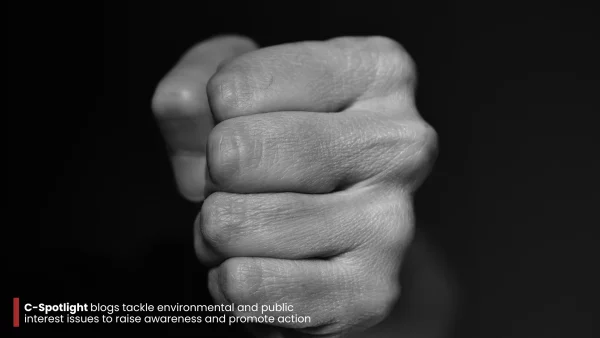Act for the Protection of the Environment and Human Rights
By: C-Help Team

Image by Annabel_P from Pixabay
On August 17, National Nonprofit Day (NND) recognizes the goals and positive impacts nonprofits have on communities and the world.
Nonprofits are groups of individuals who provide invaluable service, often for free or pro bono to the needy and with no capacity or means to access various government services. In the Philippines, volunteers as they are sometimes called, sacrifice their time, effort, and even own money, as part of their advocacy – whether as teachers, health service providers, labor, housing, land, human rights, environment, and climate justice advocates.
The Philippines has been touted as the most dangerous place in Asia and 5th worldwide for environmental defenders for the longest time.
A 2023 report by the group Global Witness revealed that for the 10th straight year, the Philippines is still the most dangerous country in Asia for land and environmental defenders who are mostly nonprofit volunteers.
The report released on September 13, 2023, revealed that at least 177 environmental defenders lost their lives in 2022 alone, and 16 killings were in Asia. The Philippines accounted for 11 of these murders that targeted environmental human rights defenders. The report said the Philippines ranked 5th as the most dangerous country in the world, following Latin American countries Colombia, Brazil, Mexico, and Honduras.
Environmental human rights defenders
Based on a United Nations definition, environmental human rights defenders are individuals and groups who, in their personal or professional capacity and a peaceful manner, strive to protect and promote human rights relating to the environment, including water, air, land, flora, and fauna”
While activities related to environmental human rights defense are non-violent direct actions, such as protests, resistance, and intervention without physical violence, or sometimes include lobbying for policy reforms or legislative measures, support or rejection of political appointees, environmental human rights defense is a risky business.
Environmental human rights defenders are exposed to various risks, the worst of which is physical harm, harassment in the form of social, cultural, psychological, emotional intimidation or harassment, or worse in the form of legal action which is often financially punishing at the same time.
Often, affected parties of environmental human rights defense resort to various counter actions, including lawsuits, to silence opposition to environmentally destructive development activities such as logging, quarrying, mining, land conversion, and land reclamation.
SLAPP
Defined as Strategic Lawsuit Against Public Participation, these legal actions in the form of civil, criminal, or administrative charges filed by an individual, institution, national or local government official or employee to harass and silence actions that are meant to promote, protect the environment, or the rights of the people to a healthy and balanced ecology, a right of every Filipino under the 1987 Constitution.
Like the risk of being subjected to physical harm, and emotional, psychological, and mental harassment, the legal risk of environmental human rights advocacy and action can be mitigated.
This begins with a comprehensive legal risk assessment – a process of identifying, analyzing, and taking steps to mitigate risks associated with a particular activity.
Legal risk assessment and management is particularly useful for non-profit organizations once they decide to engage in political activities, to protect the organization and its members from potential reprisals from the State authorities or private interests who might be adversely affected by the political activities.
C-HELP as your anti-SLAPP partner
There are ways to avoid lawsuits and protect organizations and their members. By learning what to do when subjected to intimidation, threat, or harassment, we can make our organizations and members stronger and capable of protecting themselves and effectively counter the various threats faced by nonprofits in the field of environmental human rights defense.
C-HELP offers seminar workshops and provides legal assistance in SLAPP cases as part of its advocacies and provides legal defense to environmental human rights defenders.
